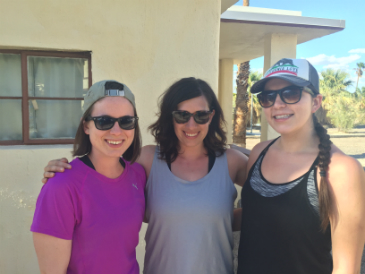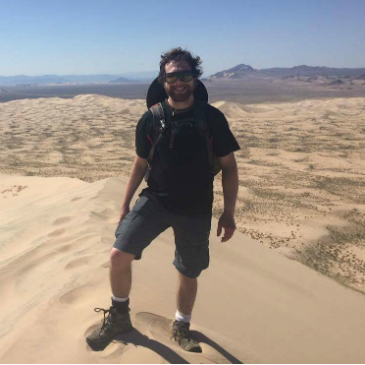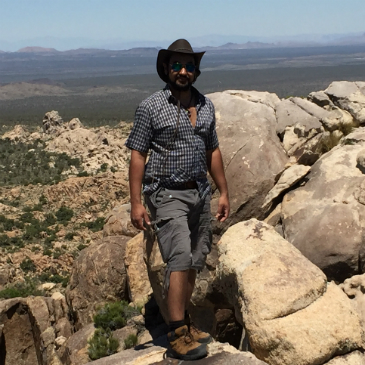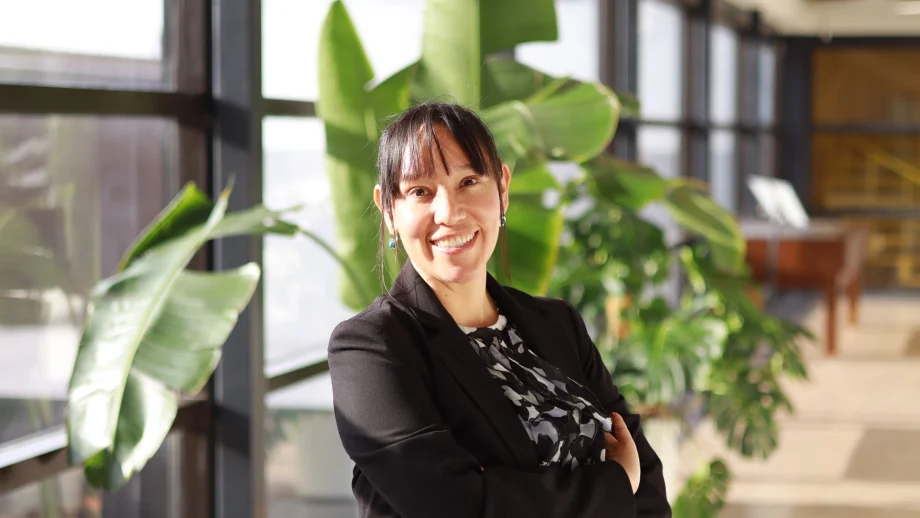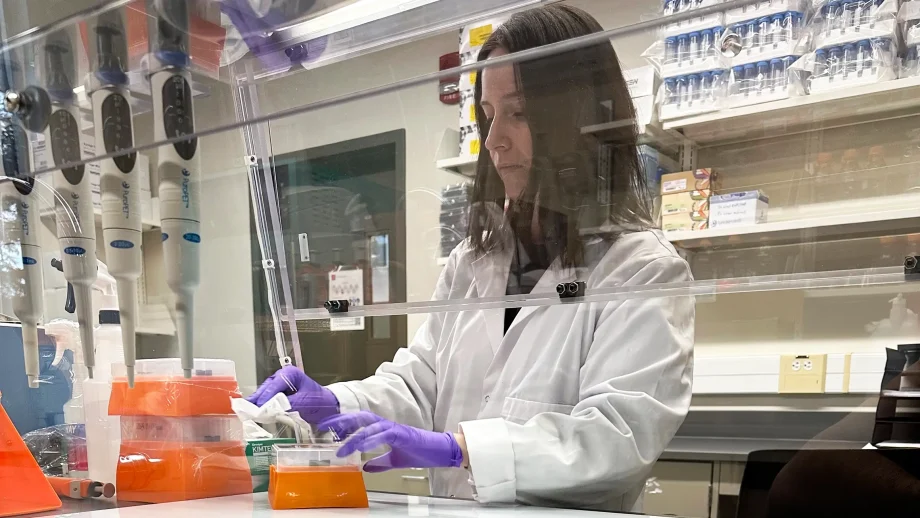UWinnipeg students have returned from a geography field seminar that took them all the way to Las Vegas, Nevada and the Mojave Desert. But unlike those who leave their Vegas experiences behind, these students will forever cherish the memories they’ve created and the knowledge they’ve gleaned.
The students camped and conducted field research for ten days at the Desert Studies Center, Zzyzx, California. The interdisciplinary seminar was designed to provide students with practical skills related to the physical, cultural, and technical aspects of their discipline. It was taught by a team of UWinnipeg geographers, including Dr. Bill Buhay, Dr. Nora Casson, Dr. Matt Dyce, Dr. Brian McGregor, Dr. Chris Storie, and Dr. Joni Storie.
The participating students come from a variety of geography or geography-related degree programs, and were able to apply knowledge derived from the different courses they’ve taken in the past. They also employed field methods such as surveying, stratigraphic mapping, re-photography, and landscape characterization.
“However, this field course is much more than an exercise in applied knowledge,” explains Casson. “Because the Mojave Desert of eastern California is a region vastly different from Winnipeg, it gave students from different backgrounds epic amounts of confidence in their ability to interact with diverse and often completely foreign landscapes.”
“Many met challenges in situations they’ve never experienced before, and through immersion in a new learning environment developed lasting relationships with their peers,” Dyce adds. “Students worked together to synthesize intellectual and practical traditions in geography and under the harsh desert sun metamorphosed into geographers.”
STUDENT EXPERIENCES
“Before coming on this course, we had only experienced the desert through geography textbooks. Through the experiences we have had over the past two weeks, whether it was visiting the stunning geological formations of Cima Dome, watching the blowing sand form and reform dunes in the Kelso Dune field, or exploring the history of resource extraction at Calico Ghost Town, this field course has brought the landscape to life. The trip was also a lot of fun, never more so than when we were eating gas station ice cream in a parking lot at 39°C or having compliment competitions. Looking into the future, we know that this experience will shape and focus our future academic and career decisions and uplift passions for this field of study.”
– Justine Backer, Stephanie Higgins, and Ellie Olson, geography students
“In a few short days I have seen and experienced more in person than in my entire life. Hiking
up rocky hills and sand dunes; glimpsing at the field of stars and the bright lights of Las Vegas and
visiting both real and imagined human environments, this field course has presented
opportunities for personal growth and experience that I would otherwise never have had.
I can truly say that this course has changed and is changing my outlook on the desert and on my
understanding of geography.” – Matthew Krulitski
“It has been an amazing experience. The desert setting provides a stark contrast to the conditions that we’re used to in Manitoba and lends itself well for a variety of new learning opportunities… It’s also taught me important lessons about working in the field, solving problems, and dealing with variable or unforeseen circumstances. I know that this course is going to leave me with invaluable skills and fond memories.”
– Jeremy Leathers, 4-Year geography honours degree student with a double major in biology
“This field trip has provided a direct link between classroom theory and the real world. I have learned valuable applied research skills that can be used in future professional endeavors. The course is a great recap of my undergraduate career and gives a last inspirational push.”
– Alex Menjivar, 4-Year Geography BSc/ Red River College Advanced GIS joint program student.
“The University of Winnipeg has always been an inclusive learning environment, and the desert field course has been the culmination of my educational experience. By tying together outdoor field experience, team building exercises, the application of textbook knowledge, physically demanding environments, and most importantly, by building relationships between peers and professors; the course has allowed us to reach new personal and communal goals. Mile-long hikes up hundreds of feet in foreign territory to reach peaks that provide perspective on an alluring landscape in conjunction with an understanding of the region’s history and cultural heritage will lead to an indelible impression to the land intrinsic to any geographer’s philosophy. A fantastic summation of a very down to earth degree program; inundated with memories, friendships, and a bed of knowledge deposited amongst a strata of colleagues.”
– Thomas Weirich, 4-Year B.Sc. student, yet to declare a major.







